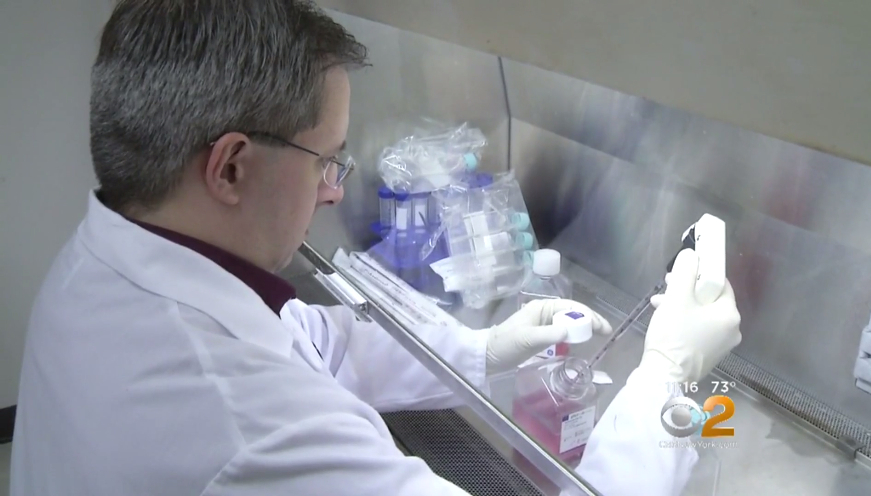Most people associate the word “salmonella” with raw eggs, contaminated meats, and endless trips to the bathroom. But according to one group of scientists, that all could change in the next few years.
Donald Schaffner, a professor of food microbiology at Rutgers University, has been studying the powerful germ for more than a decade. He believes that given time, salmonella could help cure cancer.
WATCH: Grateful Haitian Teens React After Receiving Soccer Cleats Sent by NJ Family
“It’s responsible for many, many cases of food borne illness each year,” Schaffner told WCBS-TV.
But recently, he explained, scientists found a way to manipulate the germ in such a way that could actually heal people. Scientists at Cancer Research Center in Missouri have developed a new strain of salmonella that is being used to fight breast cancer, prostate cancer, pancreatic cancer, and more.
“This is not the strain you would see off the street,” Dr. Robert Kazmierczak told WCBS.
Rater than causing food poisoning symptoms, this new breed of salmonella is engineered to target cancer cells and tumors directly once injected into the bloodstream.
“We have a large group of unique, non-toxic salmonella that could target, spread throughout and disrupt tumors while not harming normal cells,” Dr. Kazmierczak shared.
Researchers have discovered that salmonella bacteria are actually attracted to cancerous environments because they are low in oxygen, while high in purine, a compound that a different detoxified salmonella strain needs to survive.
“We’ve been able to hone what nature started into this treatment,” Alison Dino of the Cancer Research Center told WCBS.
Though typically not fatal to humans, salmonella is thought to be capable of killing cancer cells by releasing some of its own toxins. Some labs have used the bacterium to transport chemotherapy into a tumor.
One major aspect that distinguishes salmonella from other cancer treatments is its lack of painful or uncomfortable side effects.
“You could go about your business and still get better,” Dino said.
“This will be a more effective and easier to manage,” added Dr. Eisenstark.
Duke University researchers have successfully treated aggressive forms of brain cancer with salmonella in animals. Most scientists, however, believe that human clinical trials are still years away.
Speaking to WCBS, sisters Maria Siniscalchi and Cindy Kraus shared that most of the women in their family have battled breast cancer.
“I had to do the chemo, say goodbye to my hair, even though I am in the hair business,” Siniscalchi said.
“You hear you have cancer and you feel your world is collapsing,” Kraus said.
The prospect of the new treatment, odd as it may be, has left them optimistic about their family’s future.
“Who would have thought, but I think it’s great,” Kraus said.
(H/T: WCBS-TV)



